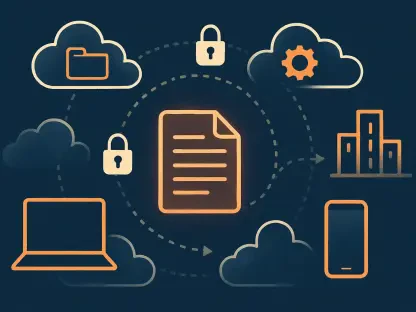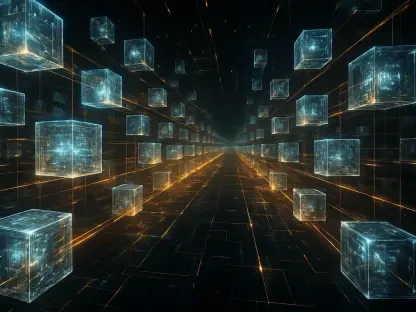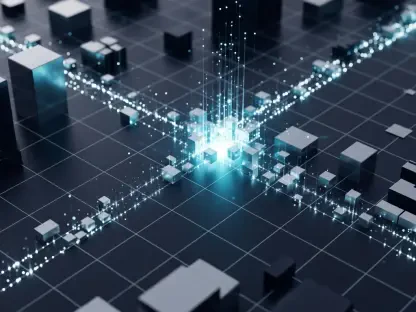In a rapidly evolving educational environment, the integration of artificial intelligence (AI) presents both promising opportunities and considerable challenges. The current discourse surrounding AI in education intensifies, particularly with tools like ChatGPT reshaping the learning landscape. Educators and researchers grapple with a pressing question: does AI enhance personalized education, or does it inadvertently foster academic dishonesty and a decline in essential critical thinking skills? This debate centers on the risk that AI might lead to cognitive complacency—a phenomenon critics describe as “dumbing down.” The conversation gains depth with new research that examines AI’s role in cognitive engagement, highlighting the potential pitfalls and benefits as schools and universities increasingly turn to technological solutions.
Impact of AI on Learning and Cognitive Development
Exploring the impact of AI on learning, the Massachusetts Institute of Technology (MIT) conducted a pivotal study to evaluate AI’s influence on intellectual capacity. The experiment involved 54 adults tasked with writing essays using three different methods: leveraging AI tools like ChatGPT, employing a standard search engine, or relying solely on their cognitive faculties. Throughout the four-month study, researchers monitored brain activity and assessed the language used in the essays to measure cognitive engagement. The findings revealed a significant decrease in engagement among participants who utilized AI compared to those using search engines or their own knowledge. This group also struggled to recollect quotes from their essays, experiencing a weakened connection to their work. The implications of these findings continue to spark debate about AI’s role in education.
While these findings present concerns about diminished cognitive engagement when AI is employed, the study cautioned against prematurely labeling AI as detrimental to intelligence. The research acknowledged intrinsic limitations, notably the small sample size, offering an important perspective on the complex interplay between AI and learning. Critics argue that the apparent cognitive decline might reflect the design of the study rather than the nature of AI itself. The familiarization effect noted in participants using traditional search methods suggests that repeated exposure and task familiarity enhance neural connectivity. When participants switched methods in the study’s concluding phase, even those heavily reliant on cognitive skills saw only modest improvements, highlighting the nuanced challenge of adapting to new AI tools in education.
Historical Context and Modern Educational Challenges
To better understand AI’s integration into education, it’s valuable to draw parallels from history, such as the introduction of calculators in the 1970s. Initially scrutinized, calculators eventually became a standard educational tool, with educators raising the complexity of exams to maintain intellectual rigor. This historical precedent underscores a modern challenge: educational standards have yet to evolve adequately to incorporate AI in a way that enriches academic rigor. Without adapting educational tasks for AI utilization, students risk succumbing to “metacognitive laziness,” where AI acts as a substitute rather than a supplement for critical engagement. Despite this, AI possesses the potential to transform education positively if leveraged thoughtfully, similar to the shift experienced with calculators in decades past.
Today’s evolving educational landscape underscores the necessity to integrate AI in a manner that complements, rather than replaces, cognitive processes. This requires a reimagined educational framework that encourages students to harness AI’s strengths while preserving the development of critical thinking skills. For instance, AI can assist aspiring educators in crafting lesson plans, pushing them toward innovative thinking and teaching approaches. As AI continues to transform educational practices, its optimal use demands a balance—leveraging AI’s capabilities while maintaining rigorous analytical and problem-solving standards that genuinely reflect students’ intellectual growth. Finding this equilibrium will shape the future of education as AI continues to deepen its presence in academic settings.
The Future of AI in Education
To assess the impact of AI on learning, MIT carried out an essential study evaluating AI’s influence on intellectual ability. In this experiment, 54 adults wrote essays using three methods: AI tools like ChatGPT, a standard search engine, or just their cognitive abilities. Over four months, researchers observed brain activity and analyzed the essay language for cognitive engagement. They found a notable drop in engagement for those using AI, compared to search engines or personal knowledge. This group also found recalling essay quotes challenging, showing a weaker connection to their creations. These results fuel ongoing discussions about AI’s place in education.
Despite concerns over reduced cognitive engagement with AI, the study warns against hastily judging AI as harmful to intelligence. The research highlighted limitations, like the small sample size, providing insight into the complex relationship between AI and learning. Critics argue the cognitive decline could be a result of the study’s design. Exposure to familiar tools like search engines may enhance neural connectivity, presenting unique challenges when adapting to new AI tools in an educational setting.









